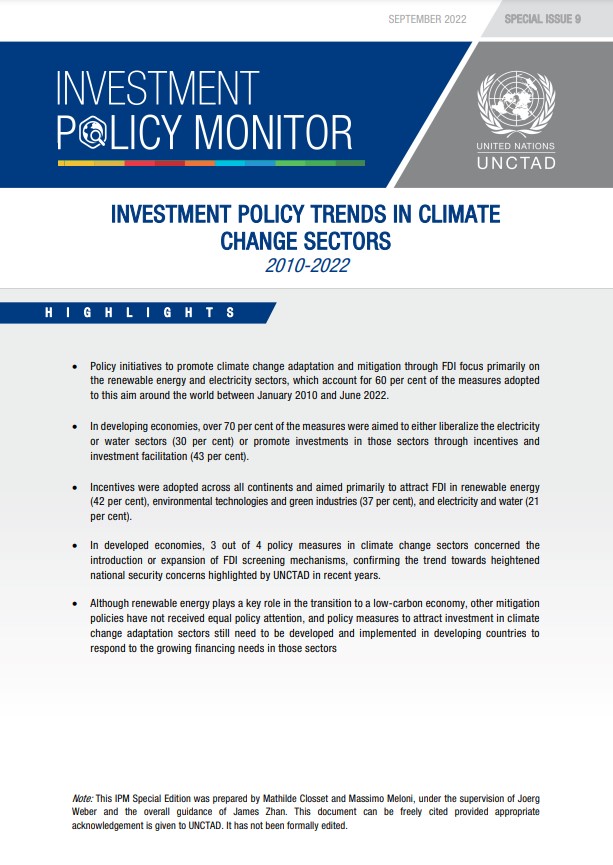Investment policy trends in climate change sectors, 2010-2022
UNCTAD has released a special edition of its Investment Policy Monitor, which analyzes investment policy trends related to climate change sectors across the world between January 2010 and June 2022.
The monitor analyses the 103 measures that have been adopted across the world during that period, and highlights differing concerns among developing and developed countries. Key findings include:
-
Policy
initiatives to promote climate change adaptation and mitigation through
FDI focus primarily on the renewable energy and electricity sectors, which
account for 60 per cent of the measures adopted around the world between
January 2010 and June 2022.
- In developing economies, over 70 per cent of the measures aimed to either liberalize the electricity or water sectors (30 per cent) or promote investments in those sectors through incentives and investment facilitation (43 per cent). Incentives were adopted across all continents and aimed primarily to attract FDI in renewable energy (42 per cent) or in the electricity sector in general (21 per cent).
- In developed economies, 3 out of 4 policy measures in climate change sectors concerned the introduction or enhancement of FDI screening mechanisms, confirming the trend towards heightened national security concerns highlighted by UNCTAD in recent years.
- Although renewable energy plays a key role in the transition to a low carbon economy, other mitigation policies have not received equal policy attention, and policy measures to attract investment in climate change adaptation sectors still need to be developed and deployed in developing countries to respond to the growing financing need in those sectors.
Download publication here
















